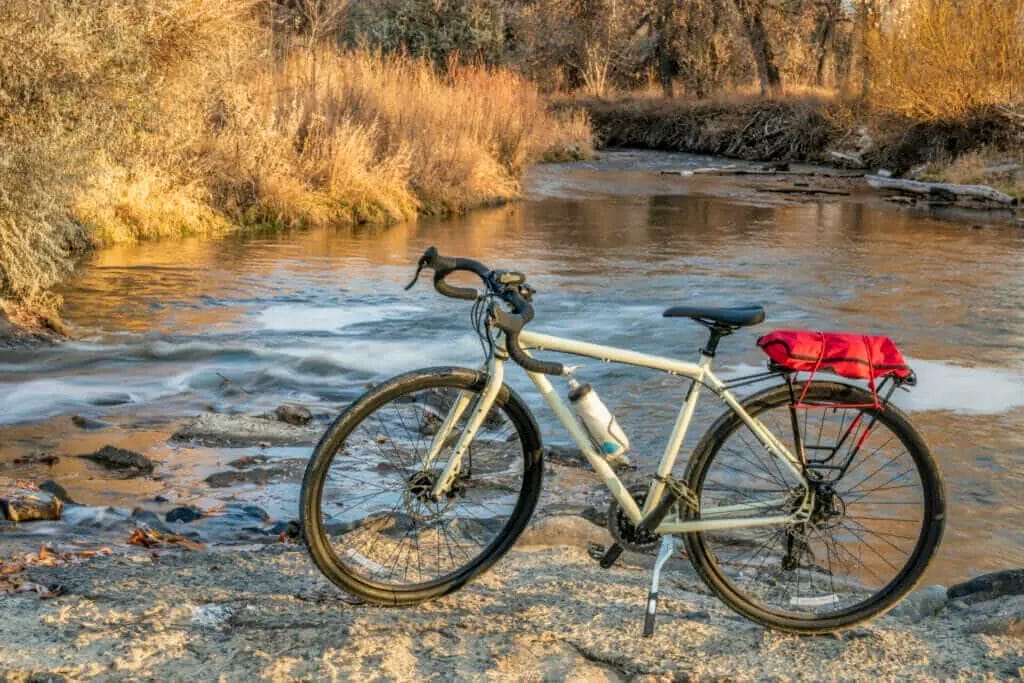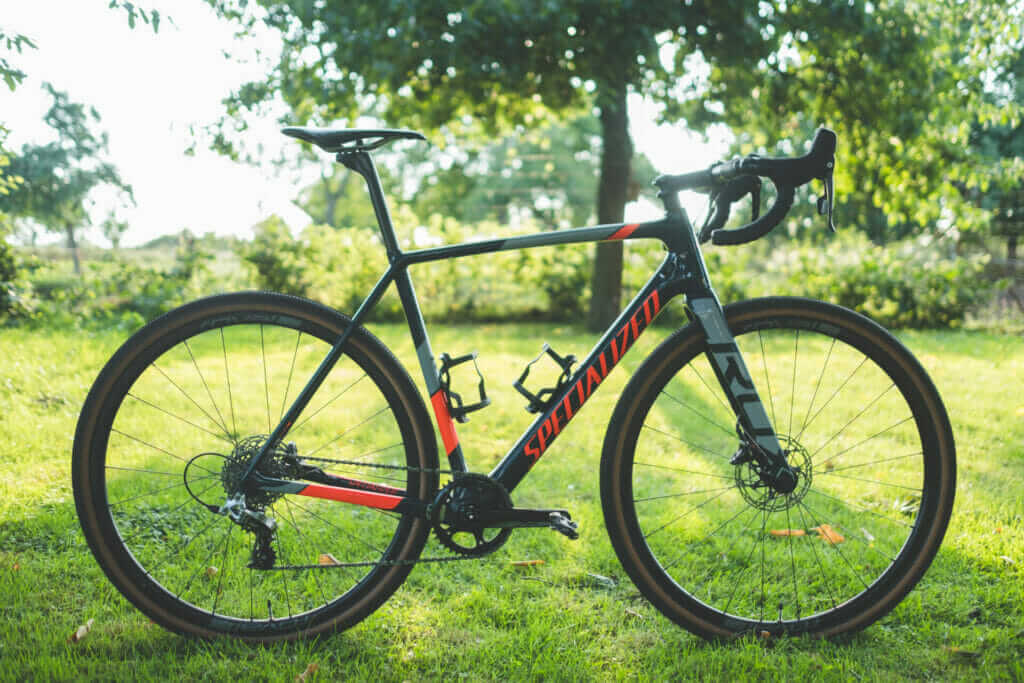Last Updated on September 28, 2024 by Vinson Lozano

If you’re considering a new way to navigate your daily commute, the gravel bike might just be the perfect solution. Combining features of road and mountain bikes, gravel bikes offer versatility, comfort, and durability, making them an excellent choice for commuting. In this article, we’ll explore the benefits of commuting with a gravel bike, tips for choosing the right one, and how to maximize your commuting experience using this incredible transportation option. Whether you’re a seasoned cyclist or a beginner, this guide will provide valuable insights into riding a gravel bike as a commuter.
Key Takeaway
- Versatile Design: Gravel bikes are suitable for various terrains, perfect for city streets or rough paths.
- Comfort for Long Rides: They provide a more comfortable riding position, which is beneficial for daily commutes.
- Ruggedness: These bikes are built to handle diverse environments, from gravel paths to paved roads.
- Cost-Effective Transportation: Riding a gravel bike reduces fuel costs and promotes a healthier lifestyle.
- Essential Accessories: Certain accessories can greatly enhance your commuting experience.
- Community and Socializing: Join local cycling groups for support and camaraderie.
Understanding Gravel Bikes and Their Commuting Benefits
Gravel bikes are designed to tackle mixed terrains, featuring wider tires and a more relaxed geometry compared to traditional road bikes. This makes them a fantastic option for those looking to incorporate biking into their daily lives, especially for commuting with a gravel bike. Here’s what sets them apart:
Why Choose a Gravel Bike for Commuting?
- Versatility: Whether you need to navigate rough roads, bicycle paths, or city streets, gravel bikes perform admirably in various conditions. They can handle potholed city streets or gravel trails with ease, making them a fantastic option for any commuter.
- Comfort: Long commuting distances can become uncomfortable on standard road bikes. With a gravel bike’s relaxed geometry and ability to handle shocks from uneven surfaces, your daily rides can be much more enjoyable. This comfort is crucial for those who spend longer durations commuting.
- Durability: Built for resilience, gravel bikes can withstand several weather conditions and rough terrains. If you’re commuting in varying landscapes, a gravel bike can be your reliable companion.
Riding Style and Posture
The riding style on a gravel bike allows for a more upright position, reducing strain on your back and neck during long rides. This is particularly beneficial for commuters who may have a longer trek to work or school. Adjusting to this style can take time, so consider joining a local cycling group where you can learn from other commuter using gravel bike enthusiasts.
Choosing the Right Gravel Bike

Selecting the ideal gravel bike for commuting can be daunting. Here are some key factors to consider:
Frame Material
- Aluminum: Lightweight and cost-effective, ideal for budget-conscious riders.
- Carbon Fiber: Offers superior comfort and durability but can be pricier. Perfect for those serious about cycling extensively as a transporter using gravel bike.
Suspension
While many gravel bikes are rigid, some models come equipped with front suspension for added comfort on bumpy paths. If your commute includes rough patches, this feature can significantly enhance your ride.
Tire Width and Tread
Wider tires provide better traction and comfort, which are essential for safety, especially on uneven surfaces. A good range for commuting is 35mm to 45mm, ensuring stability whether you’re going places with a gravel bike or cruising along smooth paths.
Gearing
Gravel bikes generally have a range of gears to accommodate varying terrains. For commuters, bikes with a compact gearing set can help scale hills easily while maintaining a comfortable cadence on flat roads.
Preparing for Your Commute
Before hitting the road, consider these practical tips to enhance your commuting experience using a gravel bike:
Essential Gear
- Helmet: Always wear one for safety.
- Lights and Reflective Gear: Increase visibility, especially during dawn and dusk commutes.
- Panniers or Racks: These can help carry your belongings securely without cumbersome backpacks.
Route Planning
Choosing the right route is crucial for a pleasant commute. Explore local trails that are safe and suitable for gravel bikes. Utilizing apps like Strava or Komoot can help in planning the best paths tailored to your needs.
Maintenance
Routine maintenance of your gravel bike will keep it in top shape for daily treks. Regularly check tire pressure, clean the chain, and ensure brakes are functioning correctly. A well-maintained bike contributes to a safer and smoother commuting experience.
Integrating Gravel Biking into Your Routine

To make the most of your commuting experience, consider these strategies:
Set a Cycling Schedule
Establishing a routine can help you stay consistent and enjoy the benefits of commuting with a gravel bike. Gradually increase your commuting frequency to build endurance and comfort.
Join a Cycling Community
Engaging with other cyclists can provide support and motivation. You can find local cycling clubs that cater to gravel biking enthusiasts. Community events also offer networking opportunities and resources for improving your skills.
Combine Transportation Modes
If your commute is particularly long, consider combining your gravel bike with public transport. Many bus and train systems allow bicycles, providing the flexibility to tackle longer distances while still enjoying the benefits of a gravel bike.
Conclusion
Using a gravel bike for commuting presents numerous advantages, including comfort, versatility, and enhanced riding experiences. As you embark on your gravel bike journey, remember to choose the right bike that fits your commuting needs, prepare adequately, and maintain your bicycle regularly. The freedom and joy of commuting on a gravel bike can significantly enhance your daily routine.
As you explore this fantastic commuting option, I encourage you to share your experiences, ask questions, or seek advice from fellow riders. Let’s create a community where we can enjoy the journey of gravel biking together!
FAQ Section
- Can I use a gravel bike on paved roads?
- Yes! Gravel bikes are designed for mixed terrain and handle paved roads well.
- How do I maintain my gravel bike?
- Regularly check tire pressure, clean the chain, and ensure brakes are functioning properly to keep it in good shape.
- What should I wear when commuting on a gravel bike?
- A helmet is essential. Consider moisture-wicking clothes and layered clothing for changing weather conditions.
- Are gravel bikes heavy?
- Gravel bikes can vary in weight depending on materials; however, many are designed to be lightweight for easy riding.
- How do I choose the right size gravel bike?
- Test ride different sizes at a local bike shop to find one that fits comfortably. Sizing charts can also help!
- Can I attach a child seat to a gravel bike?
- Yes, but ensure the bike is compatible with child seats, and consider balance and safety.
- What’s the average price range for a good gravel bike?
- Prices can range from $800 to $3,000 depending on the frame material and components.
- Are gravel bikes suitable for long-distance commuting?
- Absolutely! Their comfort and durability make them an excellent choice for longer rides.
- Can I ride a gravel bike in the rain?
- Yes, but ensure your tires have sufficient grip, and wear appropriate rain gear.
- What type of tires are best for commuting with a gravel bike?
- Look for wider tires, typically between 35mm to 45mm, with a good tread pattern for versatility in various conditions.


